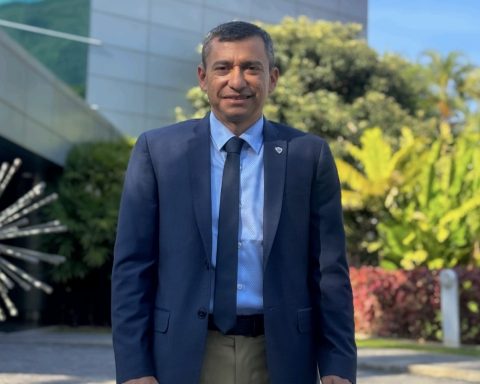Havana Cuba. — One of the most respected music critics in Cuba is undoubtedly Oni Acosta. Guitarist, director and host of radio and television programs, music teacher and even scriptwriter. A respectable man and admired by many for his moderation and balance in the television programs that he presents, and where young and even forgotten musicians and singers are promoted.
Professionals from the musical-communication ecosystem considered that with these merits they were unfair to Oni Acosta, that they did not give him the importance he deserved, that he was ignored from trips abroad and business between foreign producers and Cuban musicians, the Plaza del market where money and influences move.
Oni Acosta didn’t seem to care much about the matter. Always familiar and easily accessible to those who admired him, the same was Pepe Trombón, the old man from Parque Trillo who told how Dizzy Gillespie threw his arm over him after finishing his performance at the Jazz Plaza Festival in 1985 and promised to take him to Yuma, that Lourdita, a girl who studied music with Oni’s daughter at the Vedado Conservatory and whom, like a good father, he constantly visited at school to take an interest in her studies.
Unlike other critics such as Pedro de la Hoz, Yuris Nórido or the deceased Paquita de Armas or Rolando Pérez Betancourt, rabid servants of the regime, staunch defenders of censorship and persecutors of any alternative and aesthetic vision of art, Oni Acosta was the contrary: a haven of peace and balance in artistic criticism. Until one day, as Tropicana de la Caridad says, my neighbor transOni, “put on the revolutionary flip-flops” and accused the group Orishas of “musical terrorism”.
When did the balanced Oni agree with the regime and assume the barricade discourse of the sycophants of Granma, cubadebate and the jiribilla? Where did the kind gentleman get lost? What made you agree with the regime? When, like Doctor Faust in Goethe’s novel, did he sell his soul to the Devil?
In the spring of 2019, the until then noble Oni accompanied the National Symphony Orchestra and its conductor Enrique Pérez Mesa, the flutist Niurka González and the singer-songwriter Silvio Rodríguez, on a tour of Spain for the 60th anniversary of the National Symphony Orchestra. After that tour of Spain everything changed: Oni launched against the free musicians.
Among the titles of the most notorious attacks against them by Oni “The Ripper” in the newspaper Granma are: Genuflection and pacification. Music that pleases Miami, Plagiarism with letters of marque and opportunistic vanity.
In his text-diatribes, Oni Acosta called the group Orishas “very well articulated and stinking machinery”, and accused them of opportunistic vandalism. Not happy with expletives against Orishasthe consecrated pianist and composer Chucho Valdés described it as a “pseudo musical phenomenon, which folds before the lights of the mediocre market that makes them slaves.”
His task was not complete, his handlers seem to have told him. He had to highlight the hemorrhage of lousy aborted compositions (not born) as a result of the piece homeland and life. And there went Oni Acosta together with the outlaw Pedro de la Hoz to defend the grotesque musicals Homeland or Death for Life and unblock meby Raúl Torres, who earned the epithet “El Buitre”, for composing songs for the deceased, such as “El regreso del amigo”, dedicated to Hugo Chávez, and Riding with Fidel.
This first week of April we saw Oni Acosta collaborate with the rabid television program with edgeto whom he went as a jury to disqualify pieces conceived from exile and award him places in a top ten of “the most ridiculous songs of the counterrevolution”.
Why did Oni Acosta decide to throw his professional life overboard? Why did he betray himself and his professional work of many years and make a pact with the regime that plunges his country into darkness and censorship? The Devil will know.
OPINION ARTICLE
The opinions expressed in this article are the sole responsibility of the person who issues them and do not necessarily represent the opinion of CubaNet.















